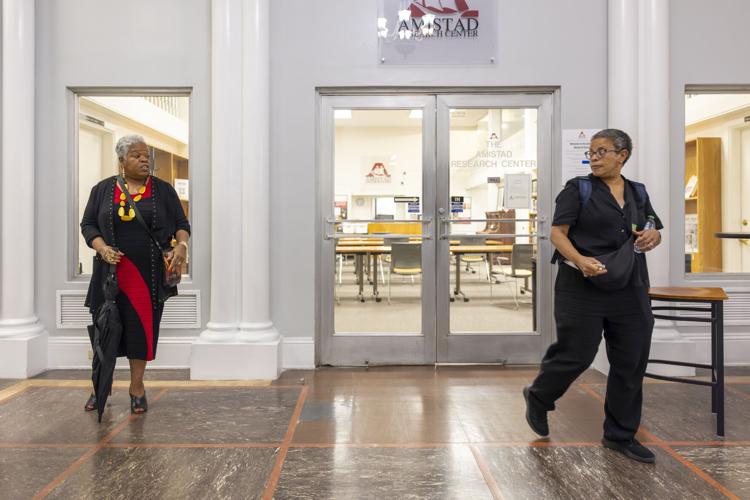get these nets
Veteran
Amistad Center in New Orleans faces severe federal cuts. Its mission now: 'Save Black History'

Kathe Hambrick, Lisa Moore
06/20/25
One of the nation’s oldest and most significant archives of Black history, the Amistad Research Center in New Orleans has collected and cared for millions of historical documents and artifacts over the past six decades.
Now that work is at risk after federal funding cuts wiped out 40% of the organization’s $1.5 million budget, according to executive director Kathe Hambrick. Last week, the center was forced to lay off about half of its 14 staff members.
The cuts stem from the Trump administration’s gutting of the Institute of Museum and Library Sciences, a federal agency that awards grants to libraries and museums across the country. The agency did not say why Amistad’s grants were terminated, but the cuts are in line with President Donald Trump’s efforts to end programs that promote diversity or prioritize the experiences of minority groups.
The loss will make the Amistad’s work less accessible to the public as the remaining skeleton crew juggles conservation work, assisting researchers and ongoing projects to sort and digitize its collections.
“There’s projects we were in the midst of that we won’t be able to finish,” said Brenda Flora, curator of moving images and recorded sound for the archive. “There’s projects we have been promised money for that was withdrawn that we won’t be able to start.”
One lost grant would have paid for the conversion of decades-old video and audio tapes of interviews with community members in Mound Bayou, a Mississippi town founded by formerly enslaved people in the 1880s. For now, the 130 hours of interviews donated by documentary filmmaker Brad Lichtenstein will sit in boxes untouched.
Federal courts have ordered the government to restore some of the grant funding, but the future of federal funding for museums remains uncertain.
In the meantime, Hambrick and her remaining staff have taken matters into their own hands, launching a $1 million campaign in March to raise money for the center and “Save Black History.”

SAVE BLACK HISTORY
“This isn’t just about survival,” Hambrick said. “It’s about reimagining how we share and safeguard Black history with the next generation.”
Federal spending cuts
The Amistad Research Center is an independent, community-based archive focused on Black history, the African Diaspora and the Civil Rights Movement, as well as other minority groups. It houses a wide range of records and art in its space on Tulane University’s campus.The collection includes art by Jacob Lawrence, personal papers of Frank Smith Horne — influential Harlem Renaissance figure and the uncle of singer and civil rights activist Lena Horne — and New Orleans poet Tom Dent, as well as old yearbooks from New Orleans high schools. They also have historical documents related to the slave ship Amistad, the archive’s namesake. A group of Africans who had been kidnapped from Sierra Leone to be sold into slavery overthrew the Amistad's captain and crew. The ship was ultimately recaptured, but the U.S. Supreme Court ruled that the Africans were taken illegally and were free to return home.
